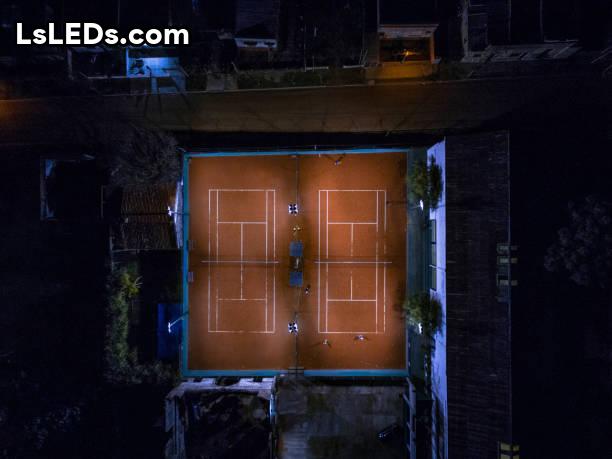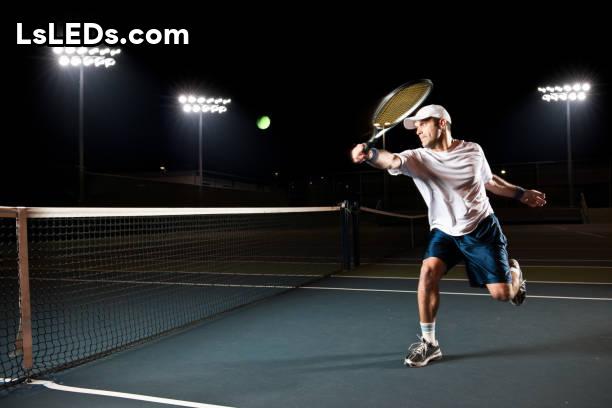
Table of Contents
How do you illuminate a tennis court?
The majority of tennis court lighting is low mast and high mast. Good uniformity, low glare, reduced amounts of spill light, and relatively easy to maintain are some of the benefits of using a low-mast system.
How many lumens do I need to light a tennis court?
8 lights are used to illuminate a tennis court that is used for tournaments or professional play. The amount of power needed to achieve this level of brightness is greatly reduced by the fact that the light is more efficient.
How do you destroy a tennis court?
Not using non-marker tennis shoes, dragging items like chairs, or benches over the tennis court surface are some of the things that can cause damage. The surface can be damaged by using bikes, roller blades, or skateboards.
Do you need planning permission for tennis court lights?
If you want to install floodlights in your court, you need planning permission. It is easier to get permission for these floodlights when they are raised and lowered by hand.
What is let tennis?
When the ball hits the net cord and lands in the service court, it’s called a let. The server can repeat the service attempt if there is a serve that isn’t considered a fault. A ball that lands outside of the box is still a fault.
How many lumens does it take to light a tennis court?
How many lumens is a sport court?
When there is not enough natural lighting, sports lighting can be used.
How many lumens do you need to light a football field?
It takes 600,0000lm to light a football stadium. It takes about 126,000,00lm to light a football stadium.
How do you light a tennis court?
A minimum of 60 to 75 average foot candles is needed for most tennis court lighting projects. The color rendering index is a measure of how well a light source renders color.
How many lumens is a volleyball court?
7 to 20 footcandles is appropriate for most volleyball plays. Up to 50 footcandles can be used for competition or professional levels.

How much does it cost to put lights on a tennis court?
The average cost to illuminate a tennis court is between $6,000 and $18,000. The price per light fixture is not the only factor that goes beyond that.
How much does it cost to install lights on a tennis court?
The cost of lighting a tennis court can range from 7,200 to 13,300 US dollars. The cost of each lamp and pole is just one of many factors.
How many lights do you need for a tennis court?
A tennis court with 8 lights produces 40,000 lm of light. 300 watt of LEDs would suffice to achieve this level of light.
How much money does it cost to put in a tennis court?
The initial installation is in the $40,000 range. It is considered a hard surface if it is asphalt or concrete. The cost for a concrete tennis court can be as high as $55,000. The cost of a tennis court on asphalt is between $60,000 and $75,000.
What are the dimensions of a tennis court?
The tennis court is 78 feet long. The courts used for singles matches are larger than the courts used for doubles. The court has a service line that is close to the net.
How tall should tennis court lights be?
The mounting heights should not be less than 40′ or less than other non-show court lights. The upgraded light fixture should be 60′ high if the other non-show courts are 60′.
How high does a tennis court need to be?
There is a minimum height for an indoor tennis court. The ceiling should be close to the baseline and close to the back of the run back. These spaces need to be free of obstructions.
How do I turn my tennis court lights on?
The lights can be started by pressing the Green Button. They will come on after a short warm up. There is no one else on the court after you turn off the lights.
What kind of bulb do you use for pickleball?
It’s a good idea to replace metal halide, halogen, HPS,LPS flood lights for indoor or outdoor ground because they are more long- lasting and energy efficient. The lamps are compatible with both direct and indirect lighting.
What are the 4 types of tennis courts?
Grass, clay, hard and artificial grass are the main surfaces for tennis courts.
